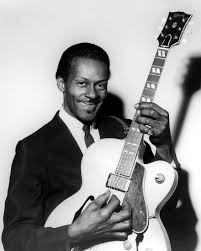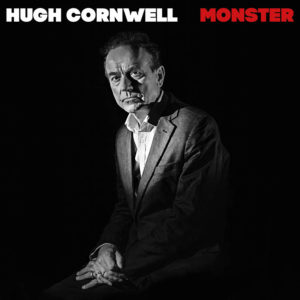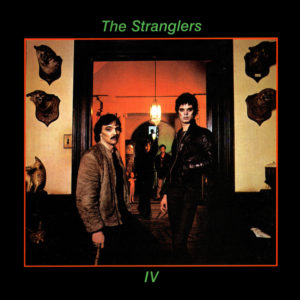Interview: Hugh Cornwell – It’s Amazing What We Got Away With!
We talked to former Stranglers front man Hugh Cornwell about his upcoming Monster Tour of New Zealand with dates in Christchurch, Wellington and Auckland. He’s playing at The Powerstation this Friday night! Ticket sales click here.
Although he left the band in 1990, Cornwell hasn’t forgotten the legacy he and his bandmates left, he’s simply built on it with a successful solo career along with authoring five books and hosting a podcast.
When the 13th Floor’s Marty Duda spoke to him, Cornwell was in the process of finishing a film script…quite the renaissance man.
Click here to listen to the interview with Hugh Cornwell:
Or, read a transcription of the interview here:
Hugh Cornwell: I’m just finishing up a couple of writing projects I’m on at the moment. I’m writing another novel. I’m just waiting to hear about a finished film script and see what happens with that. And, you know, various bits and pieces. It’s completely different from music. But it’s nice to do something else for a while. Then I can’t wait to pick up a guitar again next week and start preparing for the tour.
Marty Duda: Right. So, when you’re out there trying to sell a script for a film, is it an advantage or a disadvantage to have come from a rock & roll background?
HC: Well, you can get people’s interest, I tell you that. There’s a possibility they might have been a fan of what you do. So, you can get their interest. But there’s no shortcut. They’re gonna be hard on you, it’s gotta be up to standard.
MD: Is this your first attempt at writing a film?
HC: Yeah.
MD: I know you have a lot of interest in film. You’re involved with this Mr De Mille FM thing. Did you follow the Oscars when they were on a little while ago? Are you interested in the mainstream kind of thing?
HC: Well, yeah. I was a bit disappointed about the Cold War, which was a fabulous Polish film that was almost completely ignored and it was one of the better films. It could have at least got Best Cinematographer or something. Yeah, Green Book, a good choice to win…Roma got under – I think they ignored Roma because they didn’t want to give Netflix too big a nod.
MD: Right.
HC: Because Netflix is not about cinemas. And I think they were very cagey about giving Netflix too big of an applause because they’re worried about the future of cinema and quite rightly. There was an interesting set up results that they came up with that night, very interesting, very politically correct, I think.
MD: Has your interest in film kind of paralleled your musical interest? Or did it happen earlier or later?
HC: I think it happened earlier I’m beginning to think because I used to sit and watch movies with my mum and dad when I was 5-6 years old, on TV. And go to the cinema, so it might even predate my interest in music. And then I got old enough to be able to listen to rock & roll, cos you had to be a certain age to be allowed to listen to it.
MD: Right
HC: Whereas film pervaded everything. Film was on TV, you know. Some of those films from the 30s and 40s have got very important messages in them that are very subversive, you know? And they got through the censors, you see?
MD: Right. Do you have a favourite from back then?
HC: Nah, they all pretty good stuff. I love watching old black and white films from the 30s and 40s. There was some amazing stuff being done back then. There really was. People underestimate its value and its power. The writing then was just superb. There’s a few lessons to be learned about writing in those days. If you’ve got a good script, then it’s easy to make a good film. Is that correct or not?
MD: I would imagine so. I would imagine it’s very difficult the other way around.
HC: Exactly. But people don’t seem to be striving for the scripts like they used to. It used to be an art form and it doesn’t seem to be so much of an art form now. Maybe it will return to an art form. Who knows?
MD: Yes. Sometimes they end up being kind of cyclical, so who knows? So, you’re interest in Rock & Roll superseded that. What it because it was more of a forbidden thing?
 HC: Exactly. And I remember listening to Sweet Little Sixteen by Chuck Berry, thinking I was watching a dirty movie. Feeling I was doing something naughty…when you read the lyrics to Sweet Little Sixteen and all that stuff, so it’s interesting to think along those lines.
HC: Exactly. And I remember listening to Sweet Little Sixteen by Chuck Berry, thinking I was watching a dirty movie. Feeling I was doing something naughty…when you read the lyrics to Sweet Little Sixteen and all that stuff, so it’s interesting to think along those lines.
https://www.youtube.com/watch?v=cp6gG5CsYlo
MD: You mention Sweet Little Sixteen – there’s been all this hubbub about the Michael Jackson film and the documentary and what he did with underage people. Chances are, Sweet Little Sixteen wouldn’t be allowed to be made these days.
HC: Exactly. And that’s remarkable, remarkable what got through.
MD: Even some of the Stranglers early stuff would fall under that category.
HC: It’s amazing what we got away with as well. We got away with some remarkable stuff in the early days. When people don’t understand something, they tend to allow it, don’t they? Or if they don’t understand something they try and stop it. I’m not sure. You seem to get both reactions sometimes.
MD: I think with the Michael Jackson thing, it having it thrust in their face with this documentary that they can’t ignore it. I think a lot of people have known…
HC: I haven’t seen it.
MD: It’s pretty hard to ignore after seeing that. I think most people were fairly aware there was something shady going on all these years, but you know – whatever.
HC: Yeah. To me, Quincy Jones was always the power behind Michael Jackson. What a stunning musical force. And he wrote a lot of great film scores too. Around that time when Lalo Schifrin was writing, Quincy Jones was doing a lot, too.
 MD: Now when you come here to New Zealand, you’re doing a set of your Monster material and then some Stranglers material and all that. So, tell me a little bit about the Monster material. I know you’ve based the songs around some infamous characters of the 20th century, but music wise, how do you approach these things?
MD: Now when you come here to New Zealand, you’re doing a set of your Monster material and then some Stranglers material and all that. So, tell me a little bit about the Monster material. I know you’ve based the songs around some infamous characters of the 20th century, but music wise, how do you approach these things?
HC: Well the whole thing started, it had to do with the death of my mother. My mother died about six years ago and I thought as a tribute to her, it would be nice to write a song about her. So, I wrote this song Lay Her On Down about her, and it turned out really well and I thought, ‘that was a good inspiration,’ somebody that I was familiar with who never had a song written about them before. And so I thought, I wonder if there’s anyone else that’s never had a song written. There must be loads of people who haven’t had songs about them. I started looking. And then I watched a movie about the life of Evel Knievel starring George Hamilton. It’s a very good movie actually, quite accurate. And so, I thought, my god, there’s another one, Evel Knievel’s never had a song written about him. It’s remarkable. And it’s surprising what you can find. And one by one they presented themselves to me and when I had ten I stopped looking.
MD: It’s a fairly diverse mix of people – everybody from Mussolini to Phil Silvers. So… it’s not a sentence I ever expected to say. What was your guiding light deciding who to write about?
HC: Well, Phil Silvers – I was a huge (Sgt) Bilko fan. So. And I remember many many years ago I remember Peter Gabriel had written a song called Biko. And when I read it I didn’t know who Stephen Biko was and misread it as Bilko. And I thought, my God, Peter’s written a song about Sergeant Bilko. And then I found out that I misread it and it was Biko. And I thought, what a great idea. There’s a song about Bilko at some stage. That was many many years ago. So that’s been sitting around a long time waiting to be written. When I write I write with serendipity. I’m led to things and I just go – well why not? And I just let my nose get me to places that I can write about. And that’s the best way to go. Use your curiosity. You know – writing, creativity – it’s all about curiosity, the ability of the human mind to be curious. And to follow your senses you end up being curious and you end up in places that you never ever think you would find if you sat somewhere the whole time. You’ve got to follow your instincts and your senses. And you probably get into trouble.
MD: I’m curious. Do you approach song-writing the same way for yourself as a solo artist as when you were writing for the Stranglers? Or did you have to keep the band in mind when you were doing that.
HC: Yeah, there was a bit of that in mind when I was writing then, but now I don’t have to worry about that. But I still do try and emulate my heroes. I still want to write a song that is as good as the songs that Arthur Lee wrote for Love. I still want to write songs as good as Lou Reed used to write, etcetera, etcetera. So, you use these models, these heroes, figures to inspire you to try and emulate or try and better them if you can. And you’ve got to start somewhere. If you’re writing a song you’ve got to start somewhere, and that’s a difficult thing when you first start writing songs, you don’t know where to begin. And a lot of people, young musicians say, I can get the music, but I never know what to write the lyrics about. That’s what holds them up. For me, I’ve never had a problem writing lyrics. Words come first, really.
MD: What was the first song that you came up with that you realised was something worthwhile?
HC: The first one I was really proud of was Get a Grip On Yourself, which I was very, very pleased with. A few got rejected before that. But that one was unstoppable.
https://www.youtube.com/watch?v=THQm4bH3j_I
MD: Absolutely. And around that time, you must have been writing a huge amount of material because, between 76 and 77, you guys were cranking out singles and albums like crazy. Was that a lot of pressure on you?
 HC: Well no, there was a period of time before we got the record contract, we were writing songs a lot, so we were trying to get the songs better and better and better. We were learning about song-writing. As you’re learning you think, I could do another one, it could be better than that last one. So, you keep, you do it more and more and they do get better. So, we had a lot of stuff stockpiled, stuff that we’d rejected cos we got something that was better. Then our manager would say – no, there’s nothing wrong with that one, you know? That’s great, too. And we’d say, ‘No, but this one’s better.’ And so, we ended up with all these extra songs so that’s why there were two albums very close after each other because we had all these songs lying around.
HC: Well no, there was a period of time before we got the record contract, we were writing songs a lot, so we were trying to get the songs better and better and better. We were learning about song-writing. As you’re learning you think, I could do another one, it could be better than that last one. So, you keep, you do it more and more and they do get better. So, we had a lot of stuff stockpiled, stuff that we’d rejected cos we got something that was better. Then our manager would say – no, there’s nothing wrong with that one, you know? That’s great, too. And we’d say, ‘No, but this one’s better.’ And so, we ended up with all these extra songs so that’s why there were two albums very close after each other because we had all these songs lying around.
MD: And do you still enjoy playing them?
HC: Yes. I play them with different arrangements now. I don’t take keyboards on the road. It’s just bass, guitar and drums and three voices. And it’s remarkable what you can do with three voices. If you listen to early Who records, you can see what can be done with the voices. The voices create almost like another instrument. You can do all sorts of things if you’ve got three voices.
MD: Fantastic. Well, I’m looking forward to seeing you. I remember, I was working in a guitar-music shop in upstate New York in the 70s and you and the rest of The Stranglers came in and you were the most intimidating looking band we’d ever seen and we were all afraid to approach you.
HC: Did we buy anything?
MD: I don’t know. Nobody would come near you. We thought we were going to get beat up.
HC: Hah! How funny is that? You should have offered us a cup of tea!
Hugh Cornwell performs in Christchurch May 1st, Wellington May 2nd and at Auckland’s Powerstation on May 3rd. Click here for tickets and more information.
- Park Rd – Call Me Up: 13th Floor New Song Of The Day - May 5, 2024
- Emma Dilemma – Ready Or Not: 13th Floor New Song Of The Day - May 4, 2024
- New Music Friday: 13th Floor New Album Picks: May 3, 2024 - May 3, 2024
